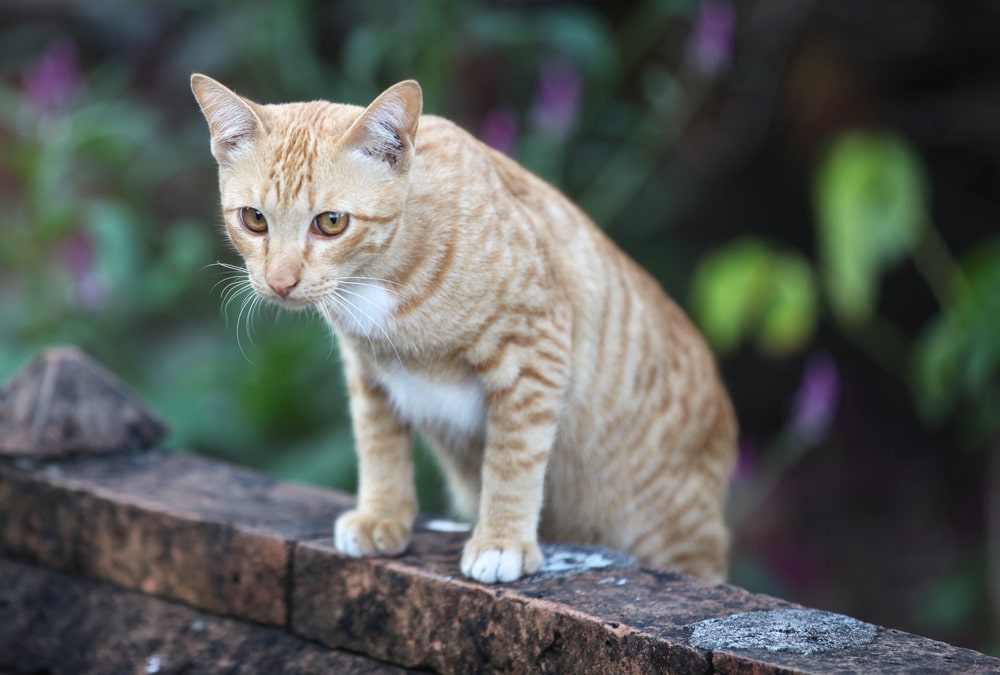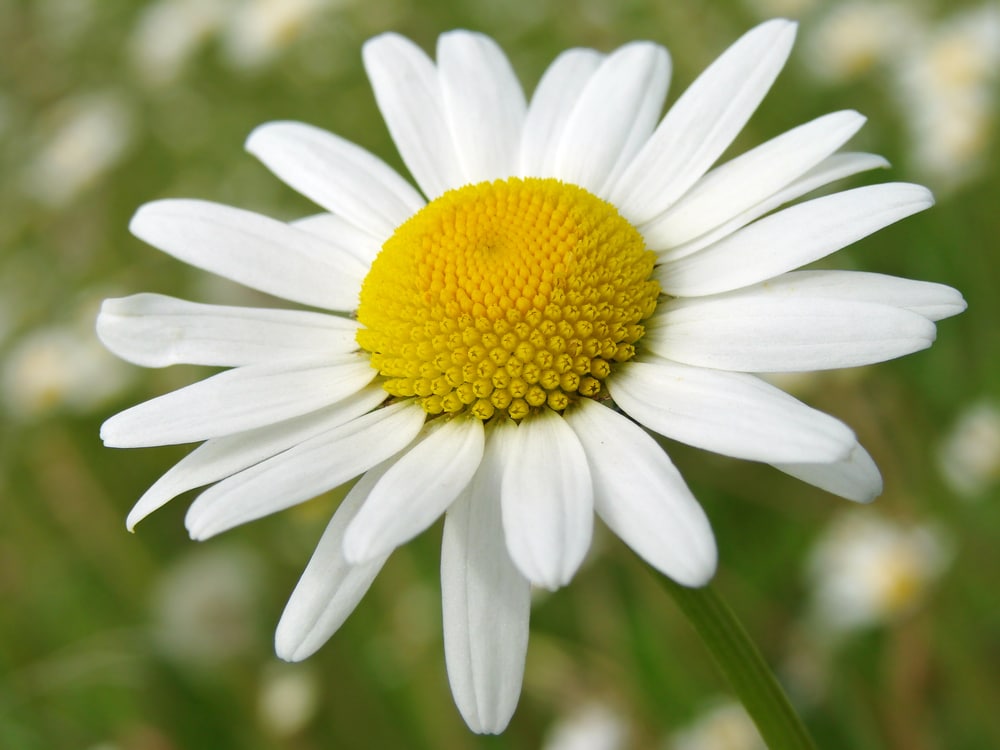Last Updated on
How does cat repellent work? Cat repellents are chemicals and devices that restrict cats from accessing different parts of your house or garden. While cats are wonderful and tender-hearted pets, they might try to access parts of your garden or house that should be preserved.
Apart from that, cats might leave claw marks on different types of furniture. With a humane cat repellent, you can easily protect your yard, lawn, garden, and flowers from cats.
Well, there are different types of humane cat repellents that work in many different ways to keep cats away from your garden. In this post, we will show you how does cat repellent work to protect your garden from paw prints and poop.
Different Types of Cat Repellents
Scented Cat Repellents
Scented cat repellents often have a certain scent that cats do not love. While scented cat repellents might be made from different ingredients, they all have a certain scent that cats do not like. They can either be homemade natural repellents or commercial repellents in the form of essential oils. A homemade scented cat repellent can be created from various types of plants.
Some of the ingredients that might be used in such repellents include citrus, vinegar, and citronella. Scented cat repellents are mainly available in spray solutions. In most instances, the scented cat repellent solution must be sprayed on different spots using a spray bottle.

Homemade solution sprays are some of the best cat deterrents. They could be ideal for cat owners that love a non-toxic solution. Also, a homemade cat repellent is relatively cost-effective when compared to an essential oil cat repellent.
On the other hand, an essential oil cat repellent is manufactured from a plant extract with a pungent smell. Most essential oils are concentrates that have a very strong scent. Essential oil concentrates have to be mixed with water to minimize the scent strength. Moreover, essential oils should not be used in a concentrated form.
Concentrated essential oils may affect a cat’s health, making it sick. Due to this, such oils should be diluted with a lot of water to work effectively.
Spotted in the supermarket
— The Wildcats (@catnev8) July 13, 2018
…this cat looks like It's had a whiff of cat repellent……lol #pissedaffcat pic.twitter.com/tFhMMoYJDB
Unlike humans, most cats and animals have a strong sense of smell and can smell things that are far away from them. Once a cat smells a repeller on the ground, it will stay away from the repellent because the scent irritates it.
Apart from that, some repellents have chemicals such as aluminium sulfate that deter cats from various spots in your house and your flower beds. While scented cat repellents effectively deter cats from different areas in your home, most do not have a smell that will irritate you.
Motion Activated Sprinkler Cat Repeller
A motion-activated sprinkler is an automatic device that always turns water on when it detects any movement in its radius range, repelling cats from a huge area. If a pet gets close to the spot where the motion-activated sprinkler is situated, it will be activated and will release water. And, as everyone knows, cats hate water.
As a result, the cat will avoid getting close to the area that you are preserving. Various motion activated sprinklers can sprinkle water over a wide area, keeping cats from different parts of your garden. It can also be used to repel other animals from different areas. Not to mention, there are different types of motion-activated sprinklers that have different capabilities, making it easier for you to choose one that suits your needs.
Ultrasonic Deterrents
Just like cat repellent sprinklers, ultrasonic cat deterrents come with motion sensors that can detect movements and then deter cats from certain sections. Once an ultrasonic cat repellent unit detects movements, it automatically activates an ultrasonic alarm.
While the ultrasonic alarm might not be noisy, it is effective in restricting cats from accessing certain parts of your home. This device emits a high-frequency sound that is not enjoyed by the cats, thus encouraging them to move away from the source. The sound from ultrasonic devices can deter cats, dogs, foxes, and even some birds, thus keeping them away from different parts of your home and gardens.
The good thing about this alarm is that you cannot hear its sound, making it easier for you to keep the noise levels low. Also, such devices can be installed in different spots and sections of your house.
I’ve acquired cat repellent, they’ve had it now >:) pic.twitter.com/Ys141XSvlS
— Lily (@dragonlils) June 18, 2021
Cat Deterrent Barriers
As the name hints, barriers are items or physical spaces that prevent cats from accessing different parts of your outdoor garden. A trench around the perimeter of your garden can discourage cats from going into your garden. Apart from that, a barrier like a fence can keep cats off your outdoor gardens and property by physically restricting them from accessing your garden.
A fence might also keep other pets, such as a dog, away from your garden. It might also be suitable for you if you have garden wildlife that maintains a specific ecosystem, such as birds, frogs, and insects. A fence restricts the movements of a cat, preventing it from hunting down birds that you might want to see in your garden. If a fence isn’t enough, you can install cat fence rollers that prevent cats from being able to make it over your fence at all.
I love cats but it's hard to defend them when they use my flower beds as a litter tray. I will be buying cat repellent. #gardening #cats
— Bethabelle (@BethabelleB) November 2, 2016
Furthermore, if a chicken wire fence is installed around the perimeter of your garden as a cat deterrent, unwanted cats won’t access your garden easily. Mulching can also create effective cat deterrent barriers that keep cats away from your outdoor garden. For instance, if sharp-edged pines are placed around the perimeter of your home garden, cats will be discouraged from digging into that area or running into your garden. While such plants can keep cats off your beautiful gardens, some cats might be injured if they try to cross a perimeter that has sharp-edged pines.
Planting Certain Plants
Some certain plants can act as cat deterrents if they are present in your garden. In fact, most scented cat repellents are made from a plant. If citronella is growing in your outdoor gardens, cats will be repelled by the odour that it produces. As a result, the cats will avoid your outdoor garden.
Apart from that, plants such as Lavender, Rue, and Coleus Canina can repel cats from your garden. Also, since cats hate the citrus scent, they can be repelled by anything with that scent, including lemon peels, tangerine peels, and orange peels.
I know theres bug repellent but is there stray cat repellent that I can put on my car
— 𝔞𝔡𝔯𝔦𝔞𝔫 (@adrianfromtwt) July 18, 2021
Other Cat Repelling Tactics
While cat repellers effectively keep cats from certain designated spots, some precautions can also be taken to keep cats from your yard, lawn, and garden.
Here are some of the other tactics that keep cats from certain areas:
- You can keep cats away from your home by avoiding feeding your animals in an outdoor area. Since cats have a strong sense of smell, they can smell food from far away; therefore, cats are likely to come into your garden if they know there is food that they can eat.
- The same goes for outdoor bins; always keep the lids on and keep them secure so that cats and foxes can’t go through your bin bags.
Get a Deterrent for Your Home
Knowing how does cat repellent work is the first step you need to know. While different types of repellents make it easier for you to deter cats, the effectiveness of repellents might be different. Plus, the performance of deterrents might vary based on various factors. For example, some motion-activated sprinklers can sprinkle water in a huge area. Meanwhile, the different scents may not be as effective in different seasons.
Not to mention, repellents work in different ways to deter cats from secluded areas. Once you find the best cat repellent for your home, use it around the secluded sections of your garden, yard, or house.
Ian loves everything that revolves around the home improvement niche. He loves trying out new home appliances. He has also handled a lot of equipment and has a lot of insight. Plus, he’s worked on various home improvement projects that became a success.
If Ian isn’t busy working on his latest project, you can find him reading up about another one!



